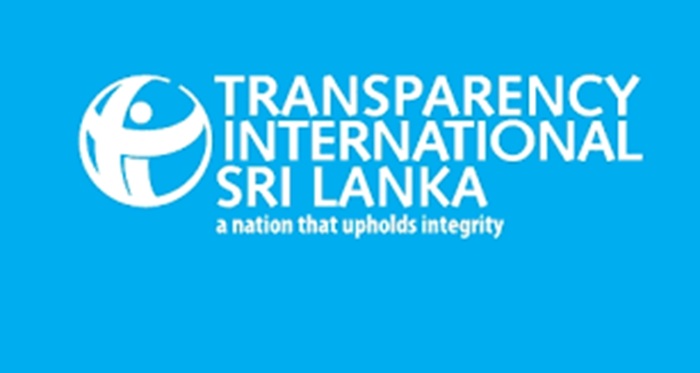
Transparency International Sri Lanka (TISL) has expressed concern that the impact of Section 21 of the Public Financial Management Act (PFMA) No. 44 of 2024 compromises the financial and institutional independence of the Commission to Investigate Allegations of Bribery or Corruption (CIABOC).
Issuing a statement, TISL said Section 21 of the PFMA requires every budgetary entity to prepare and submit its budget estimates in line with the “budget call circular” issued by the Treasury. The section empowers the Ministry of Finance to set binding expenditure ceilings, issue detailed policy guidance, and include other instructions or information as deemed necessary by the Secretary to the Treasury.
Importantly, under the Anti-Corruption Act No. 9 of 2023, the CIABOC is mandated to submit its annual budget estimates directly to Parliament, in keeping with its status as an independent commission. However, the PFMA requires CIABOC to submit its budget through the Ministry of Finance, which will subsequently submit it as part of the annual budget to Parliament and requires approval for any investment programmes from the Ministry as well. This would represent a serious departure from the safeguards established in the Anti-Corruption Act, undermining CIABOC’s institutional and financial independence.
While the intention behind this provision may be to promote fiscal discipline and consistency across government entities, it poses serious risks to the independence and operational integrity of a vital oversight institution that must remain insulated from executive control in order to be fit for purpose. The United Nations Convention Against Corruption (UNCAC), to which Sri Lanka is a State Party, requires States to ensure that national anti-corruption agencies have the independence and resources necessary to perform their functions effectively (Articles 6 and 36), while the Jakarta Principles on Anti-Corruption Agencies clearly state that adequate, stable, and independent funding is essential to prevent undue influence and safeguard operational integrity.
CIABOC, as Sri Lanka’s apex anti-graft body, must be able to plan, allocate, and manage its financial resources independently to fulfil its mandate whilst being accountable to Parliament. The ability to determine priorities and strengthen institutional capacity depends on having predictable access to funds, free from external influence. Subjecting CIABOC’s budget to a Treasury-issued circular that imposes ceilings and prescriptive policy guidance effectively places the Commission’s financial autonomy under executive oversight. The implementation of section 21 of the PFMA in its current form risks contravening safeguards carefully set out by the Anti-Corruption Act. When the budgetary and operational flexibility of a body such as the CIABOC is constrained by ministerial directives, its capacity to act impartially and independently is inevitably weakened. This could have far-reaching implications for Sri Lanka’s anti-corruption agenda and the state’s commitment to good governance.
TISL further said that the introduction of reforms to improve management of public funds, such as the PFMA itself, should aim to reinforce, not restrict, the independence of institutions tasked with upholding financial integrity and combating corruption. TISL calls on the Executive branch of government to ensure that implementation of the Public Financial Management Act and all other laws do not undermine or erode safeguards built into the system intended to protect oversight bodies such as the CIABOC. The government must proceed with caution when new legislation intersects with the mandates of independent commissions.
The TISL pointed out that this development highlights yet again the greater need for openness and consultation in the lawmaking process, which remains woefully inadequate in Sri Lanka. More transparent and participatory legislative drafting is essential to ensure that reforms intended to strengthen governance do not inadvertently weaken institutional independence. (Newswire)
